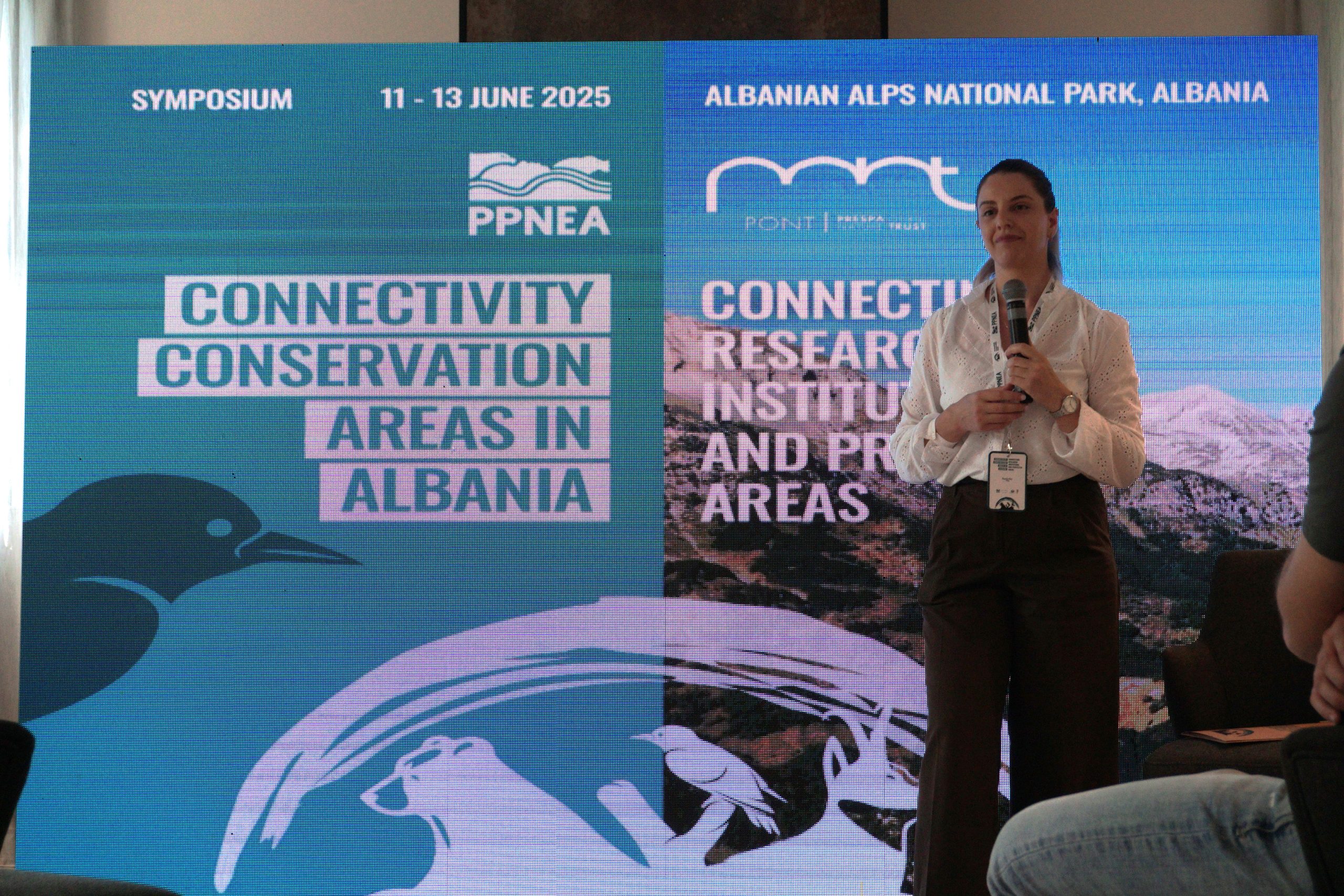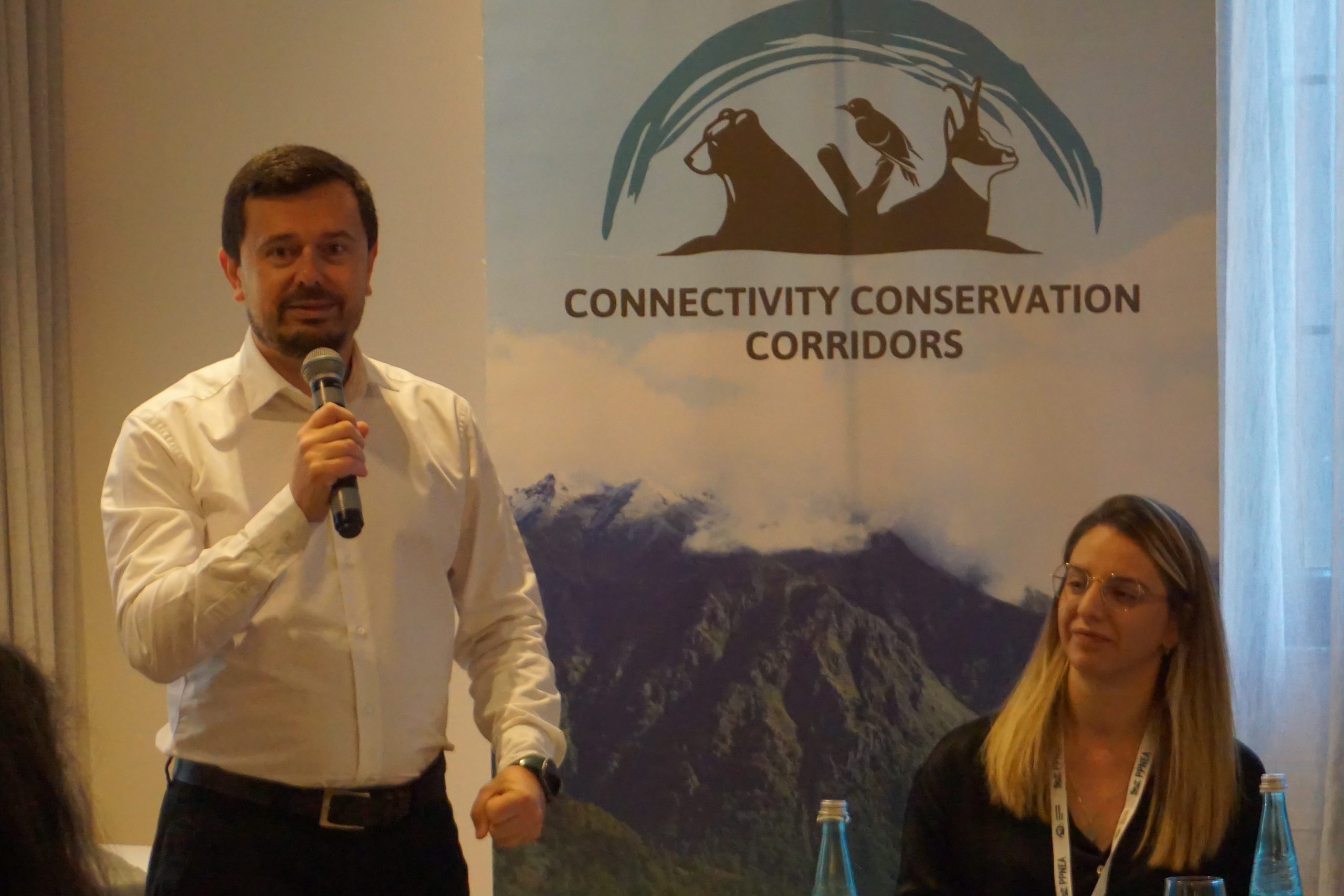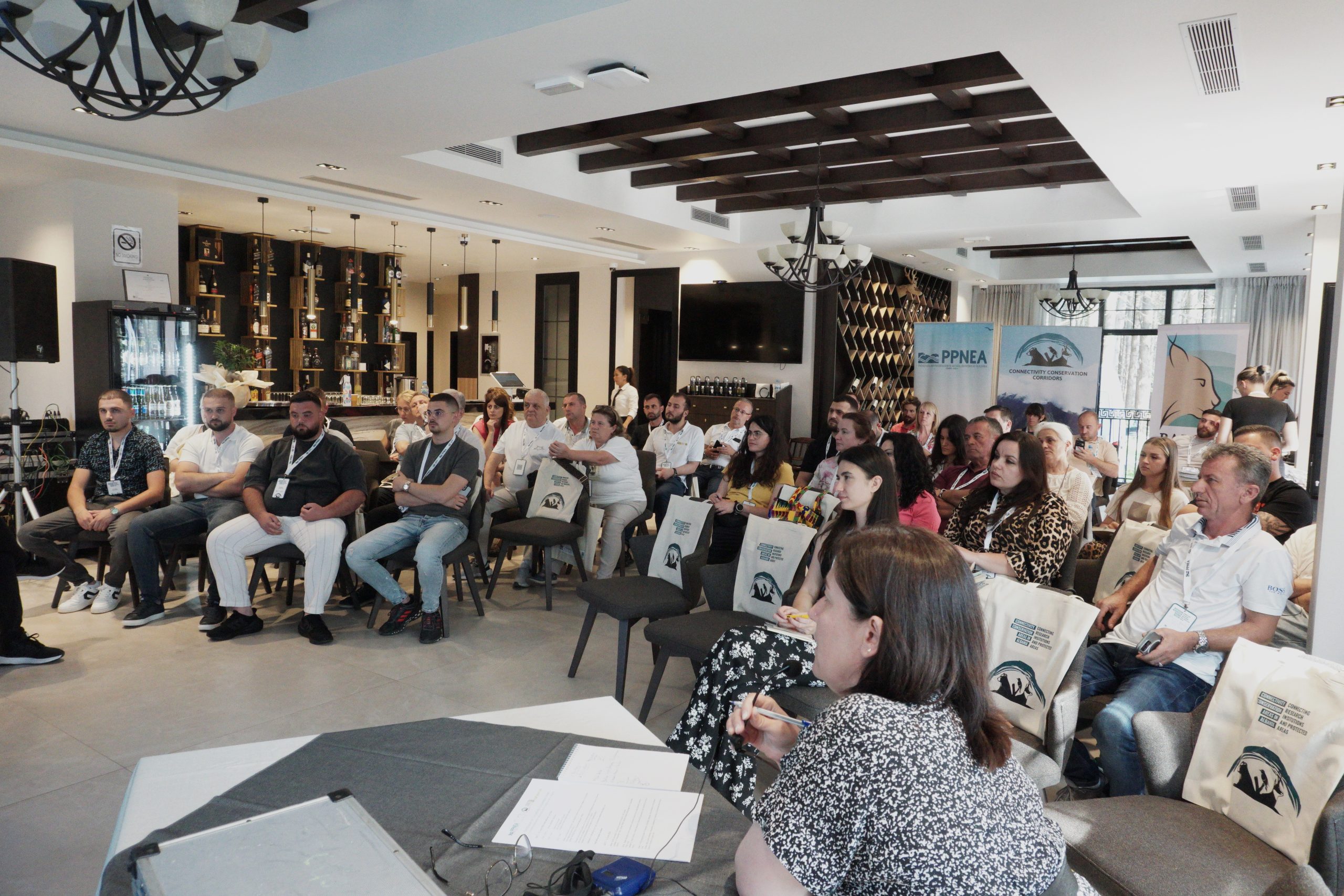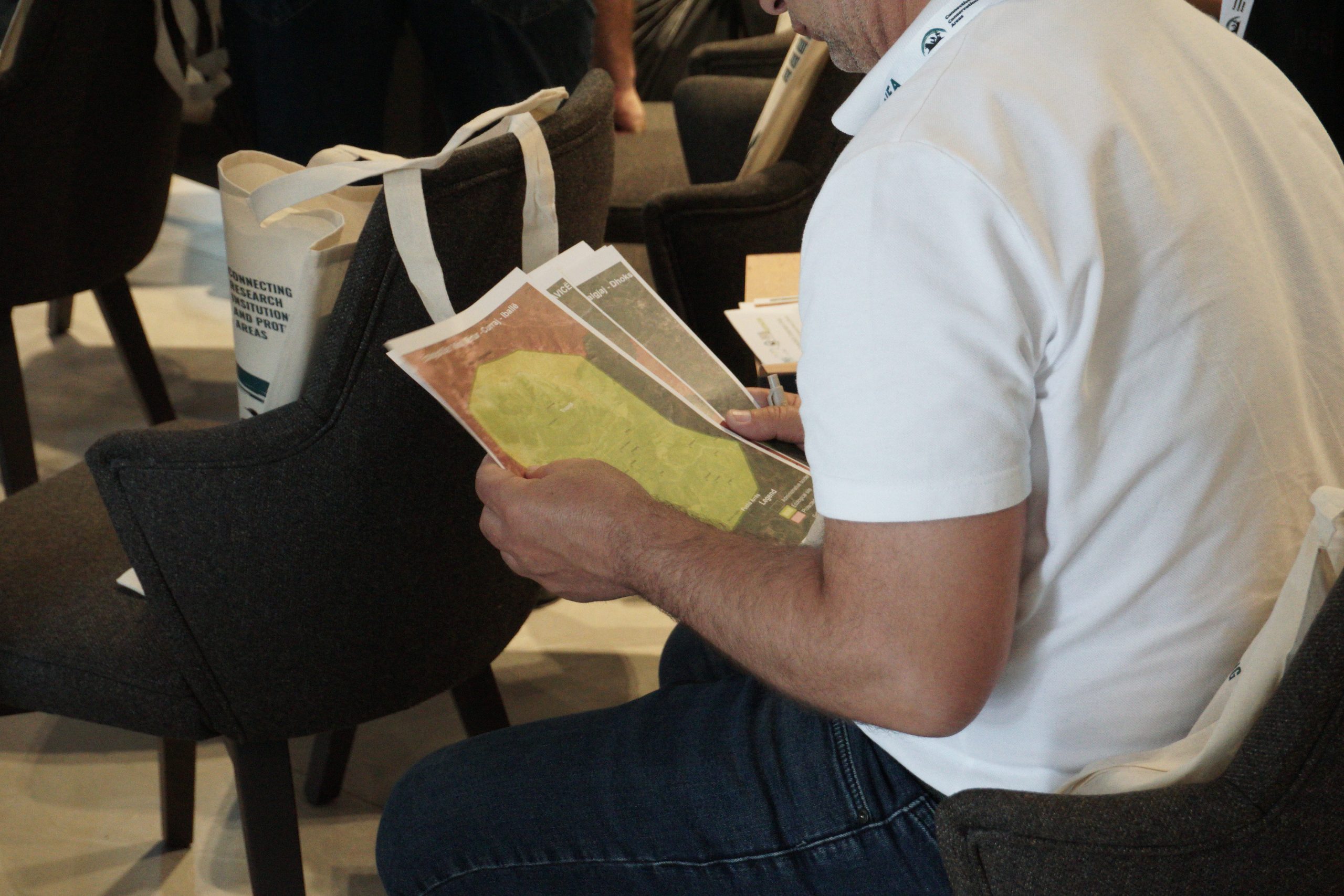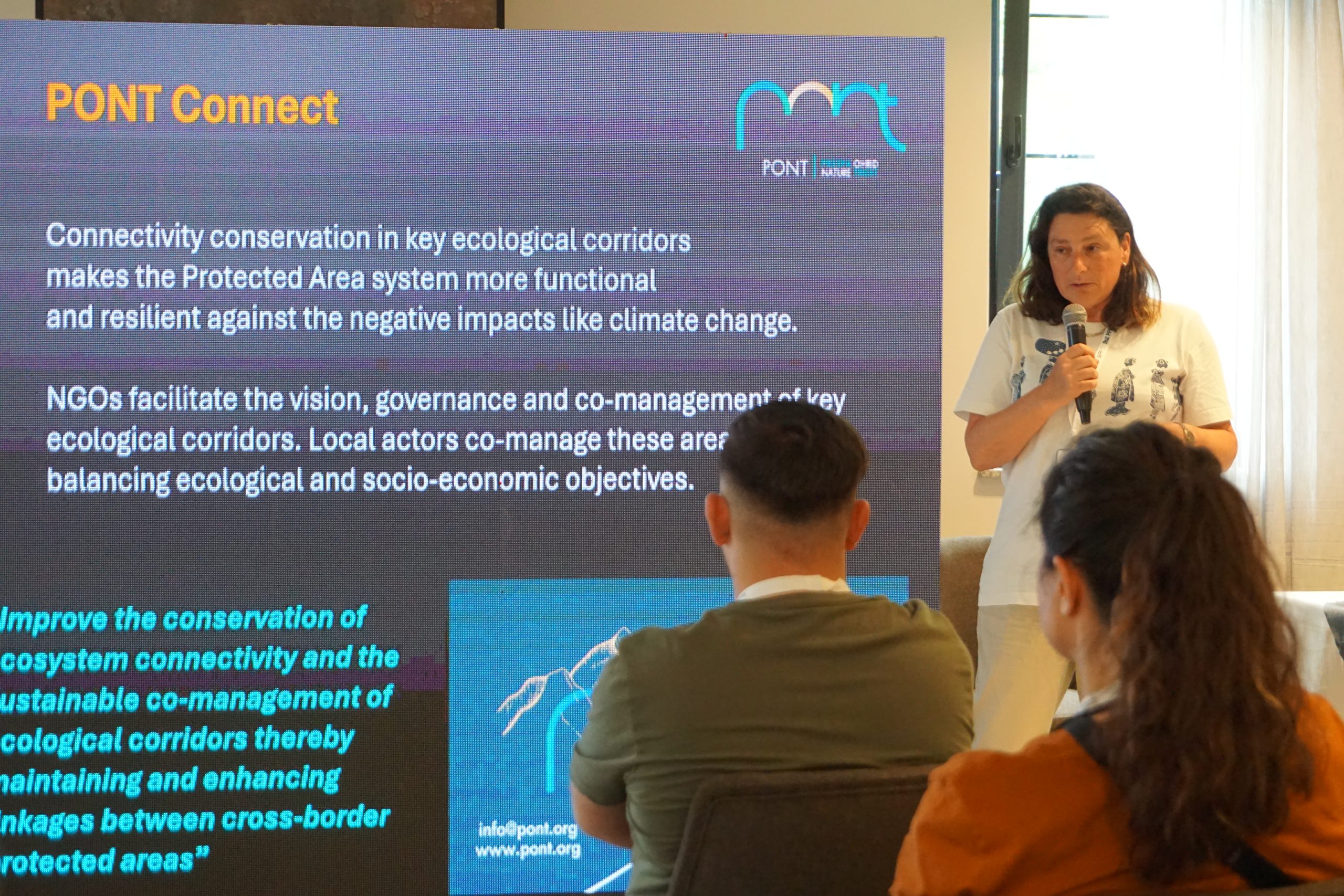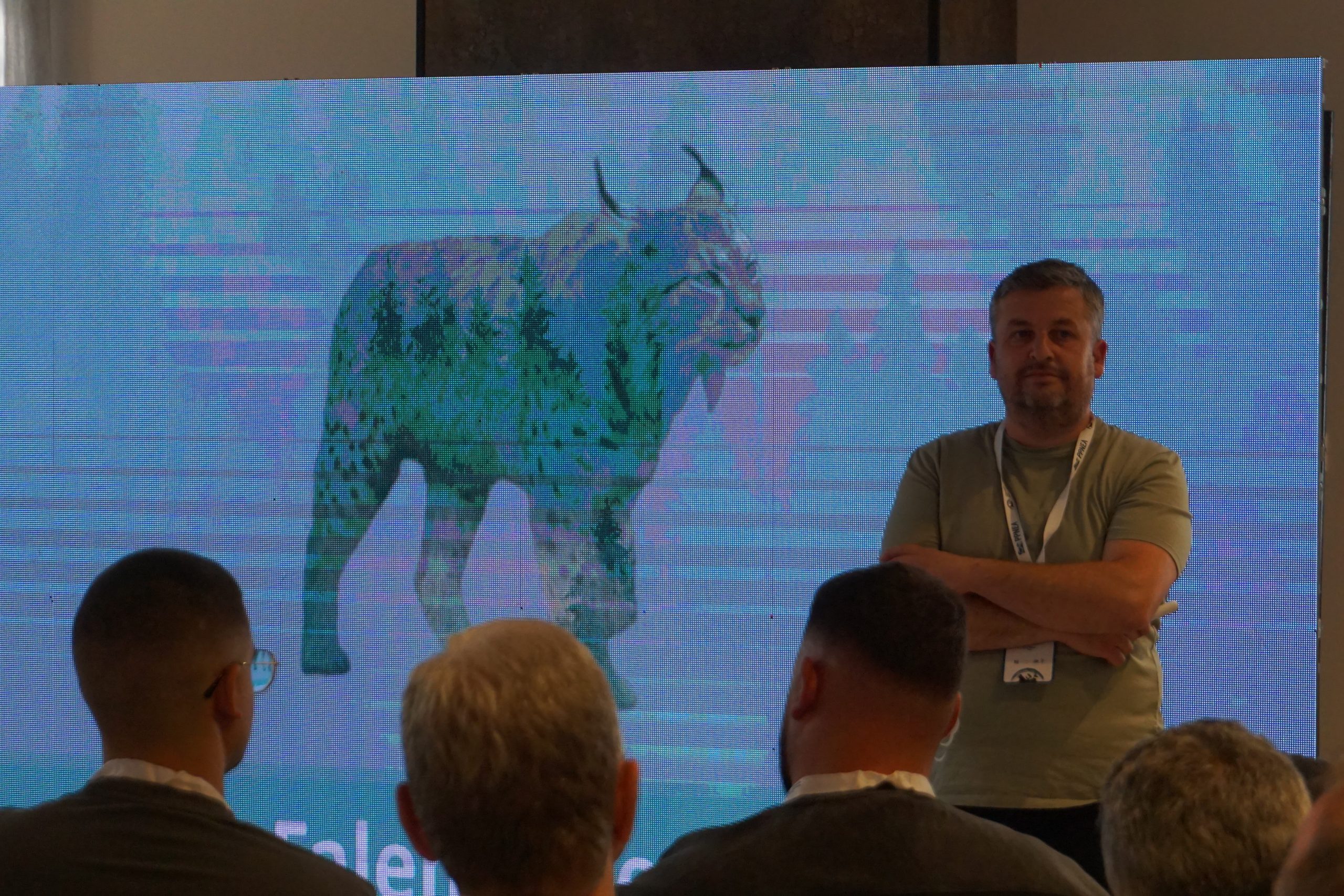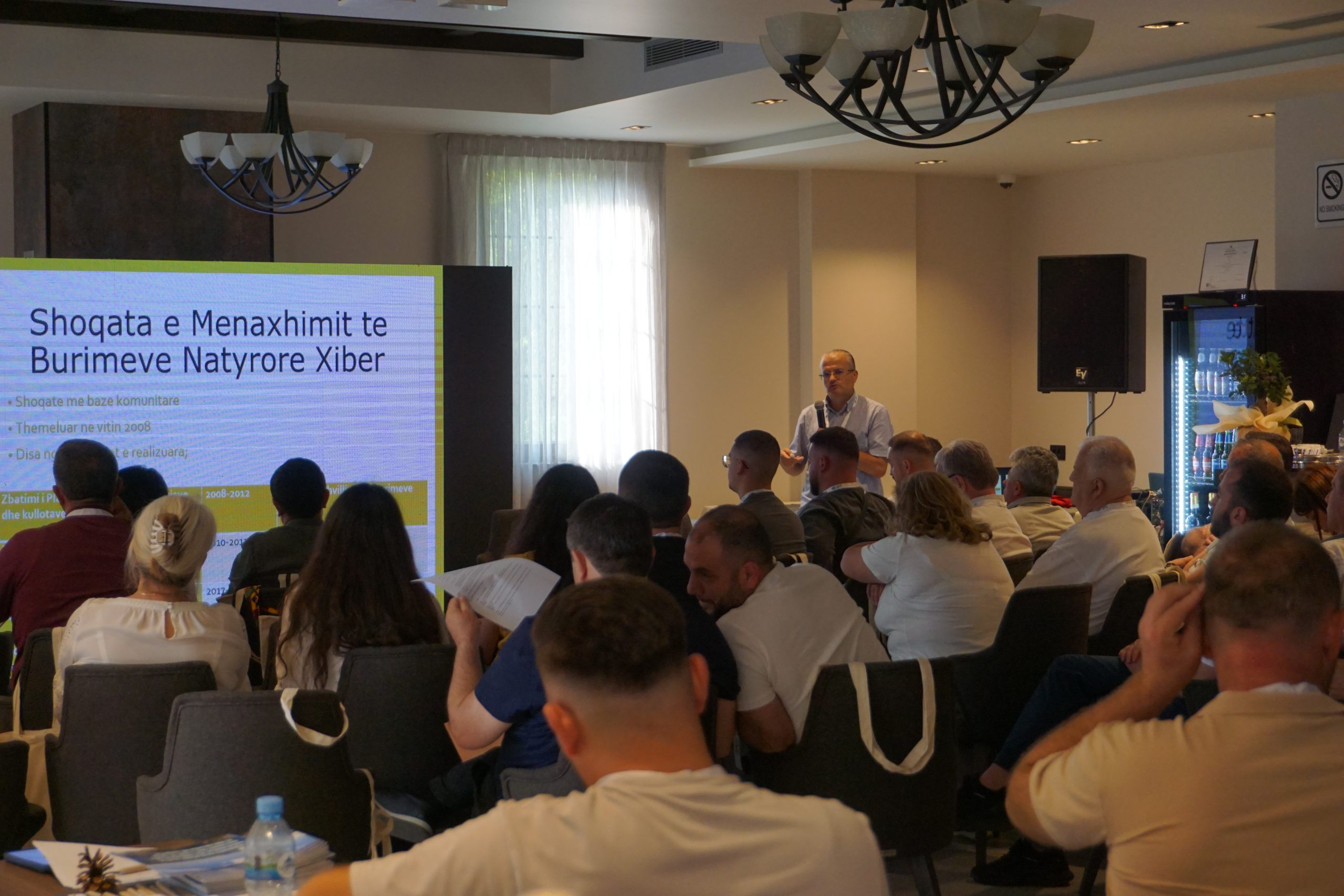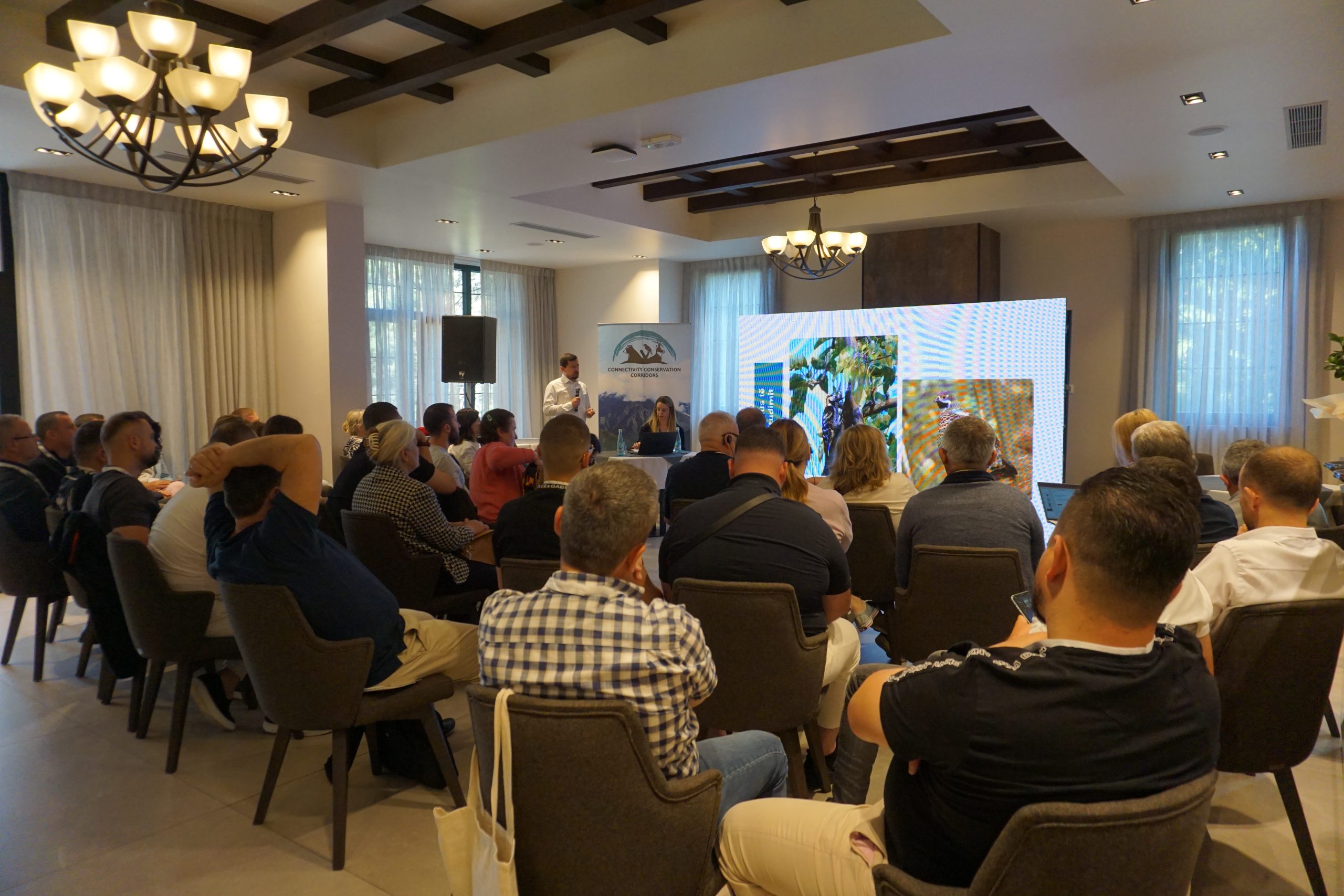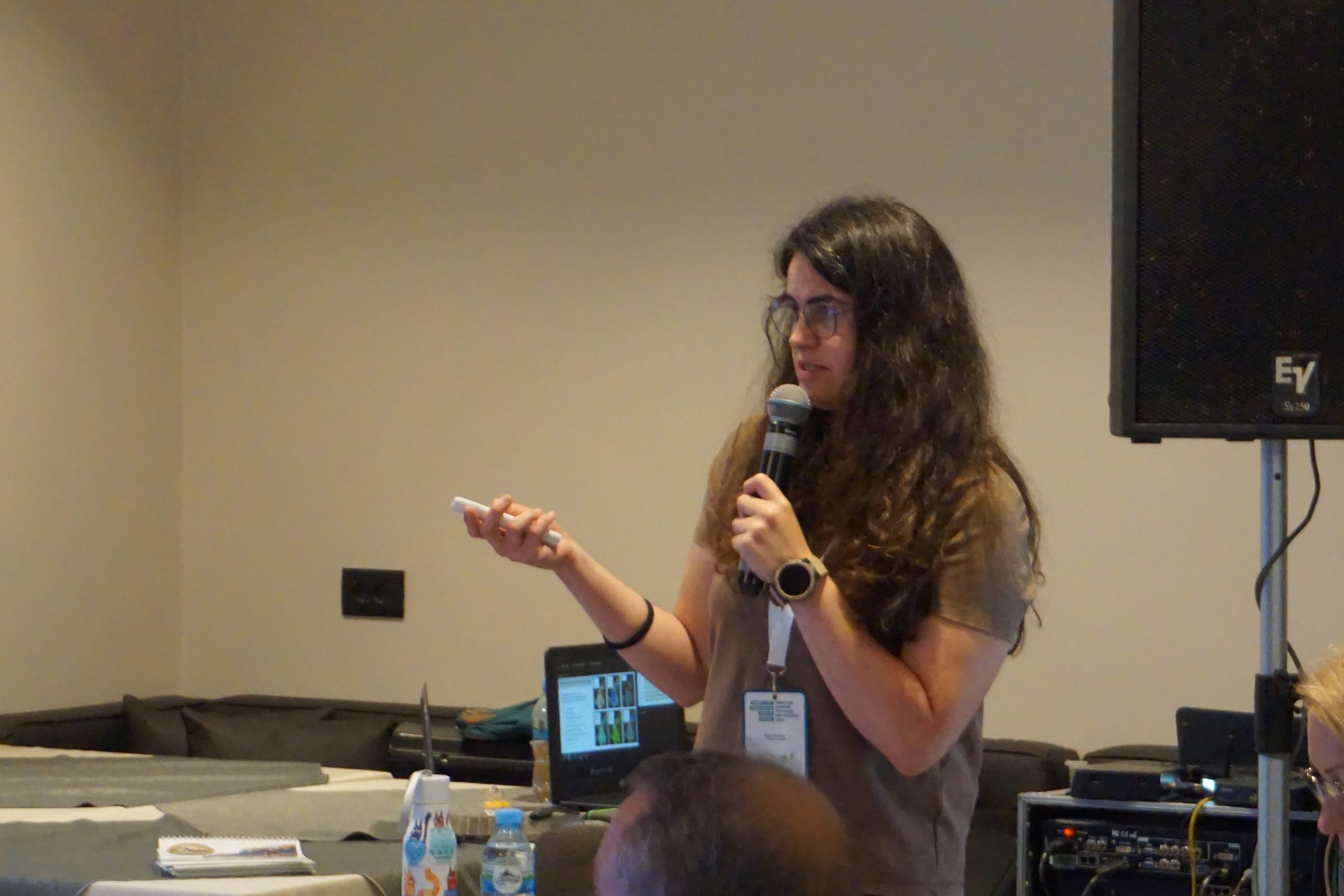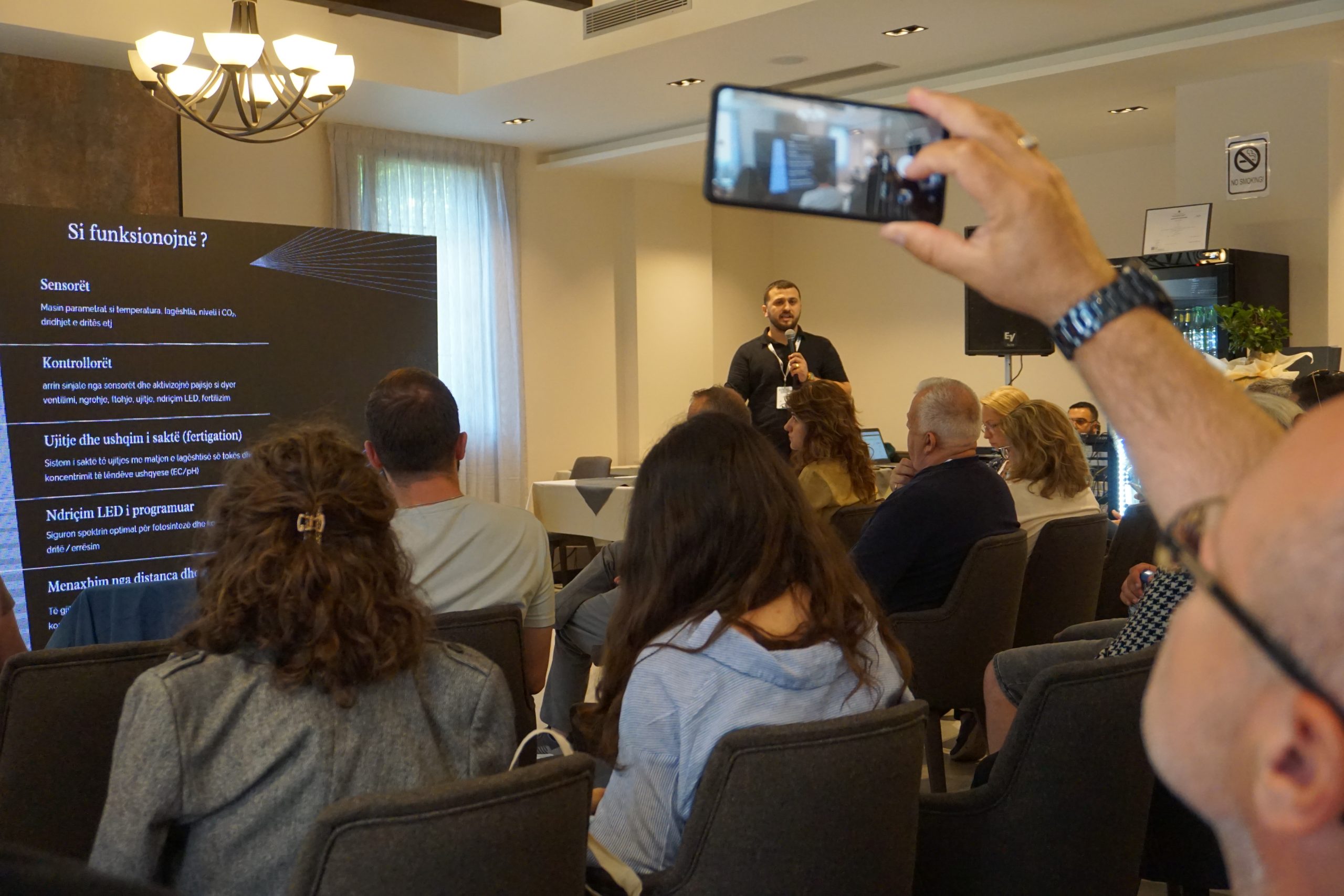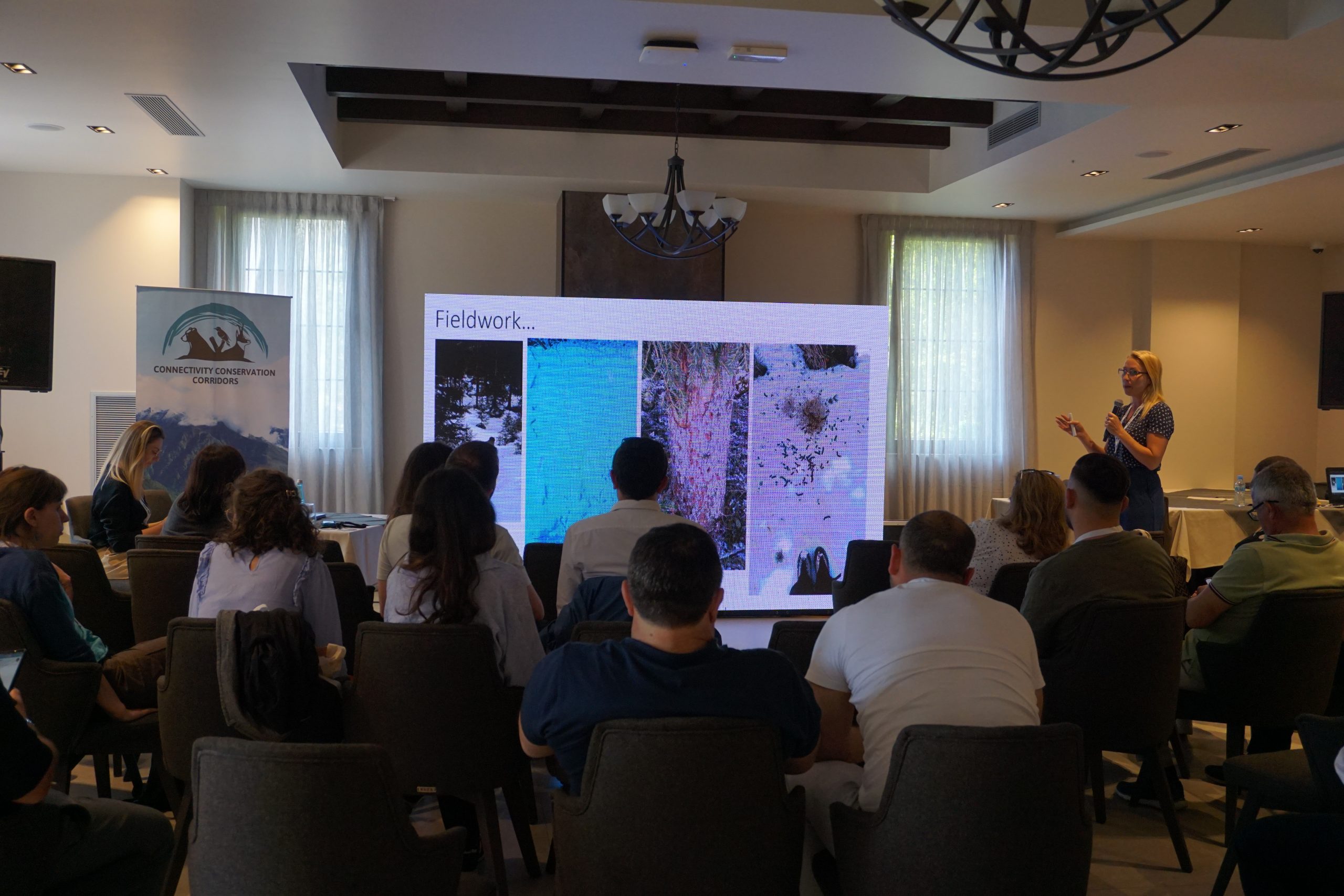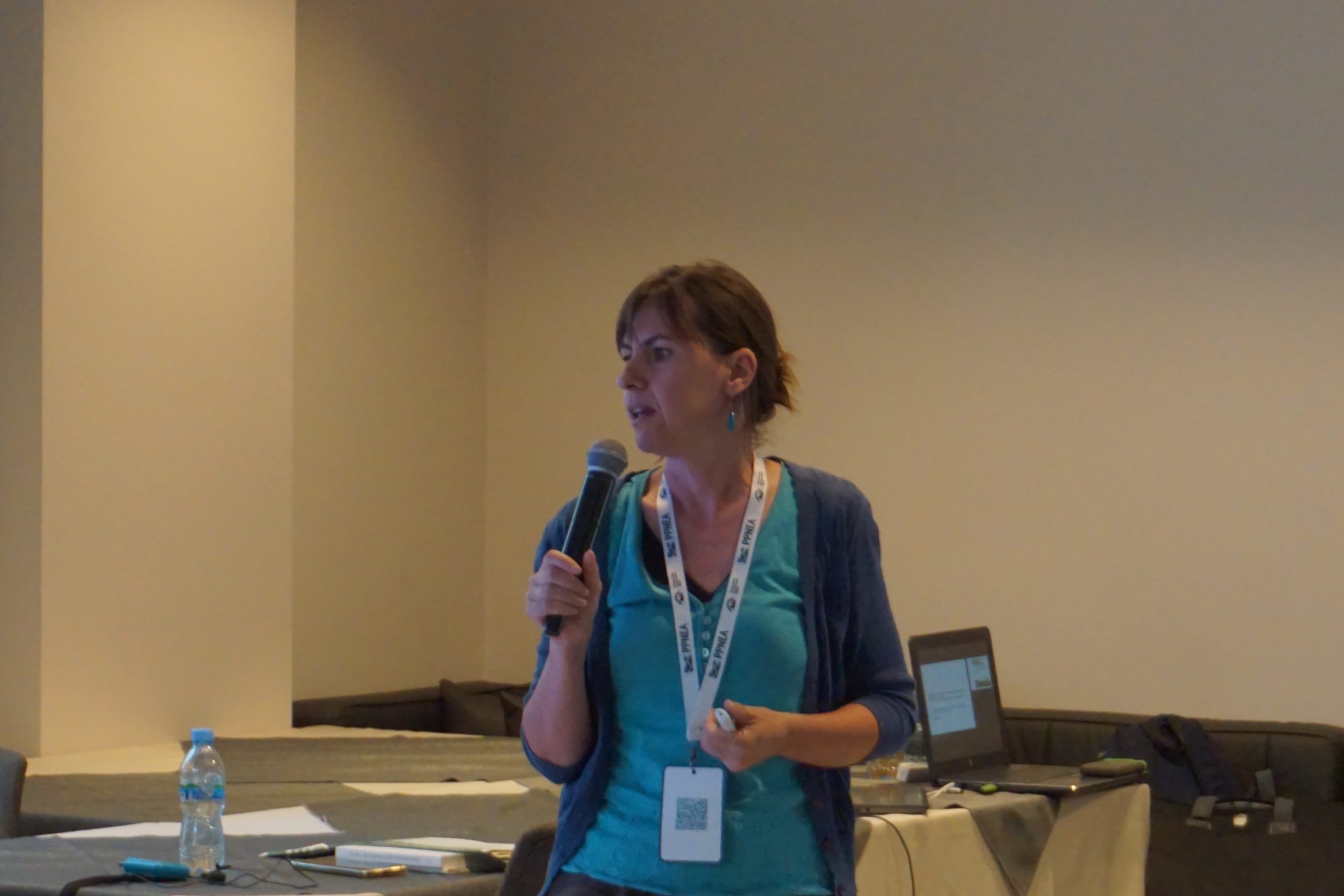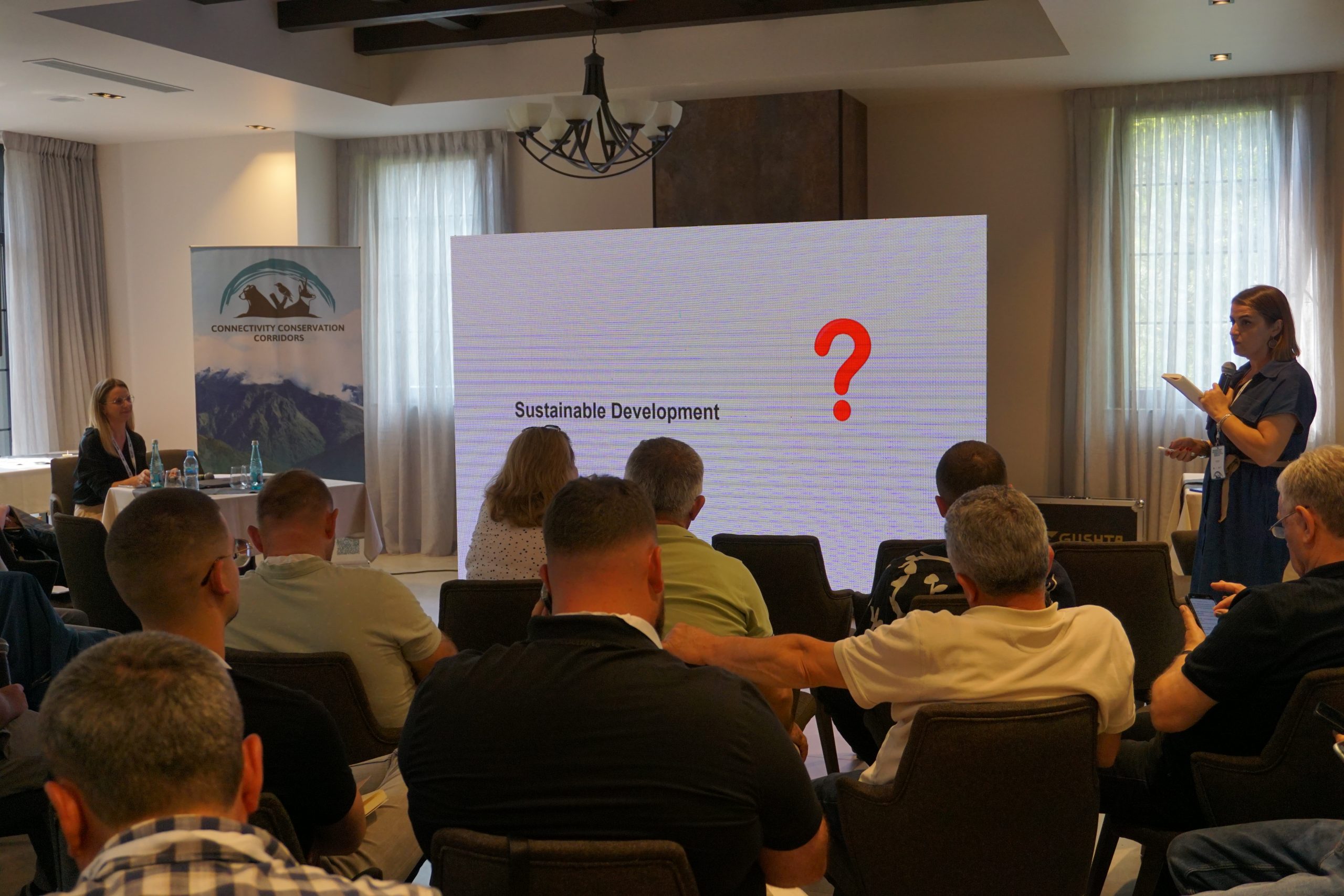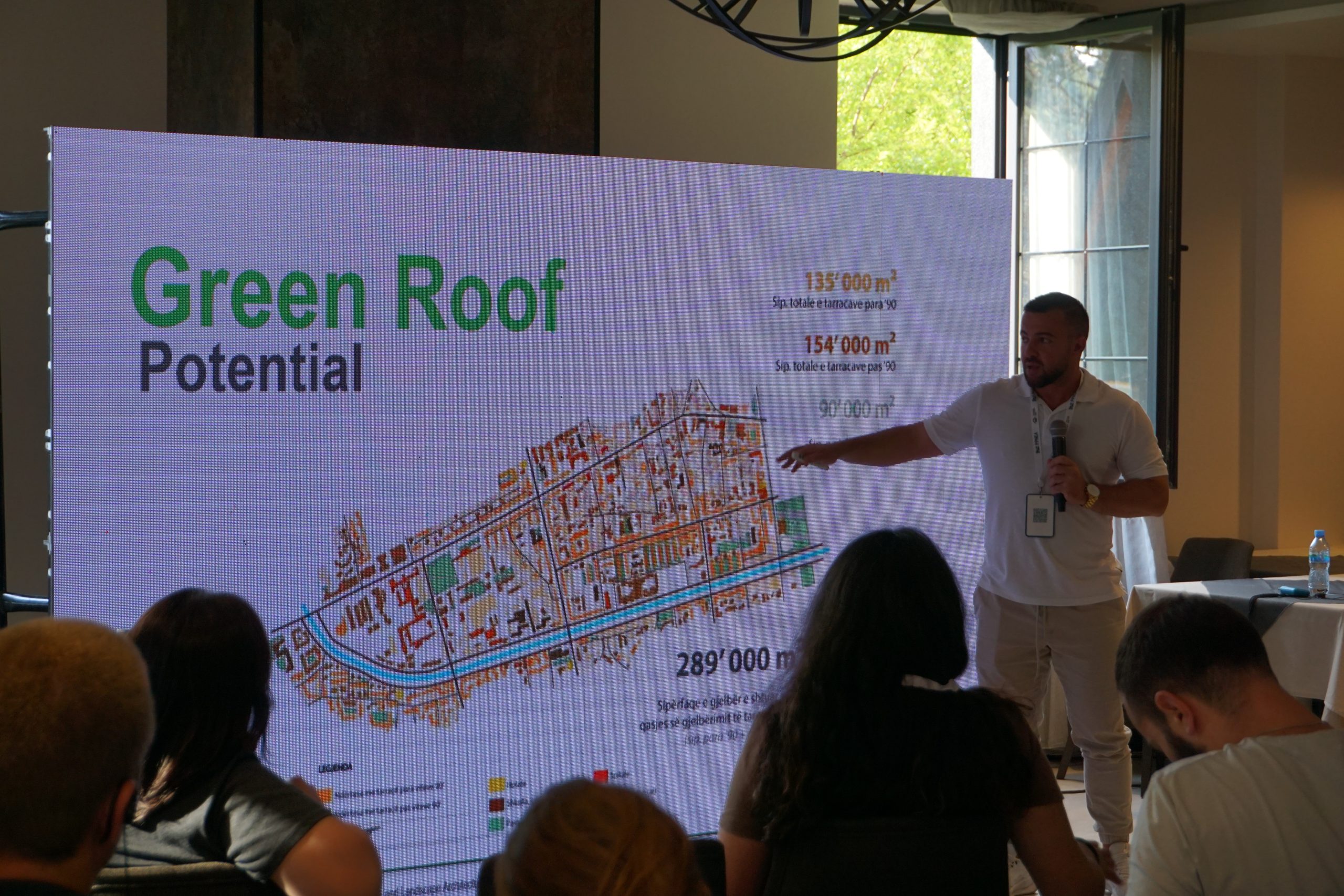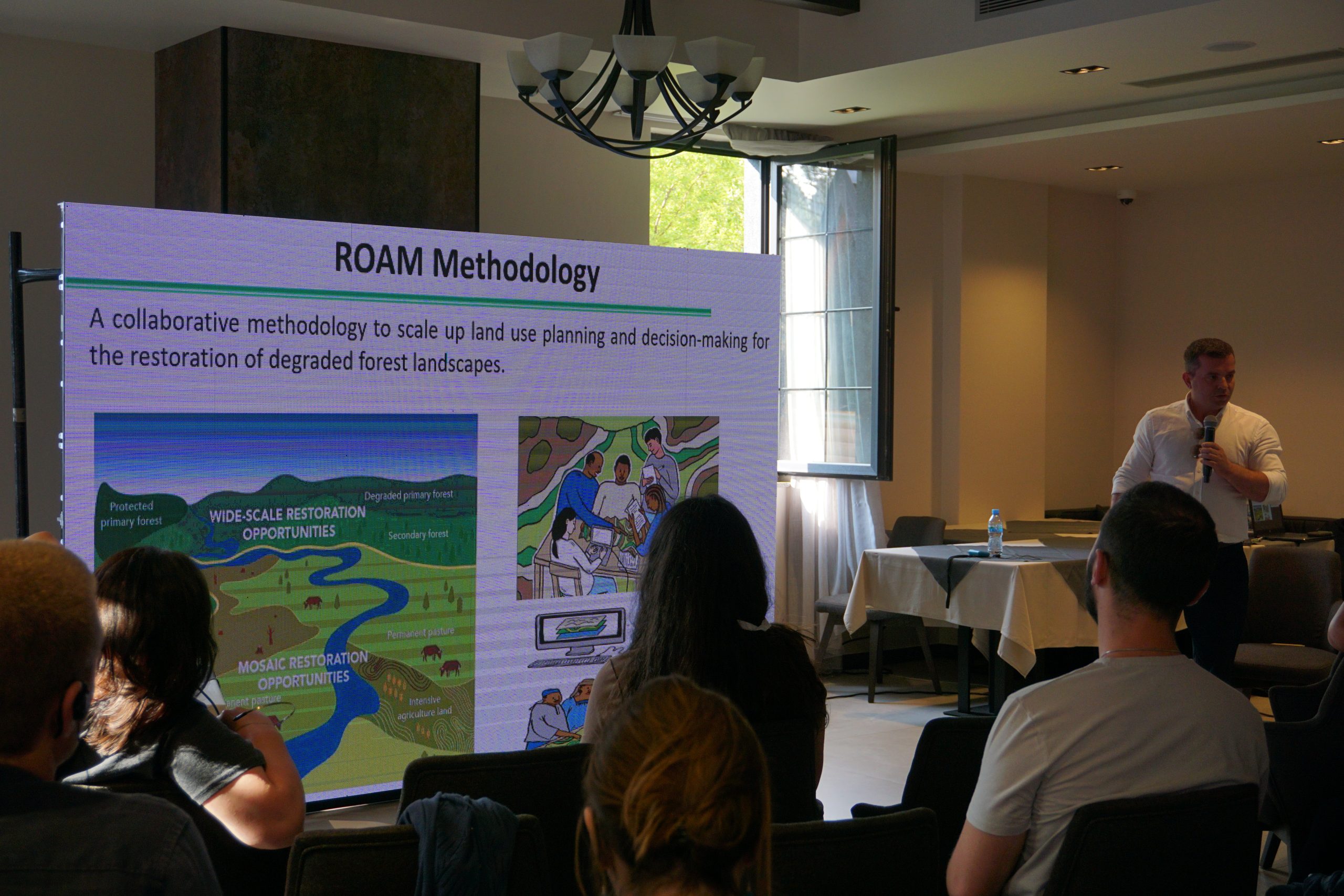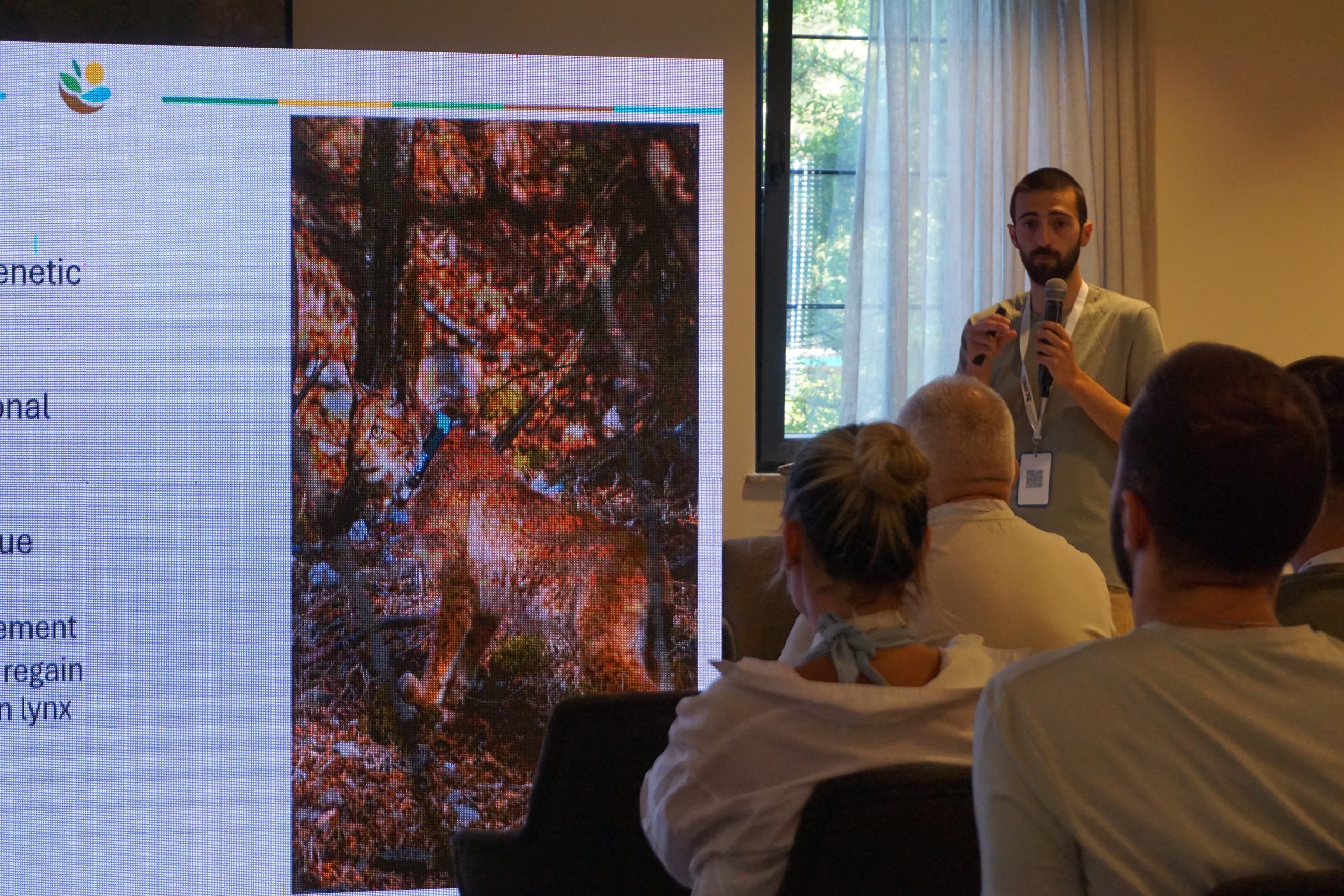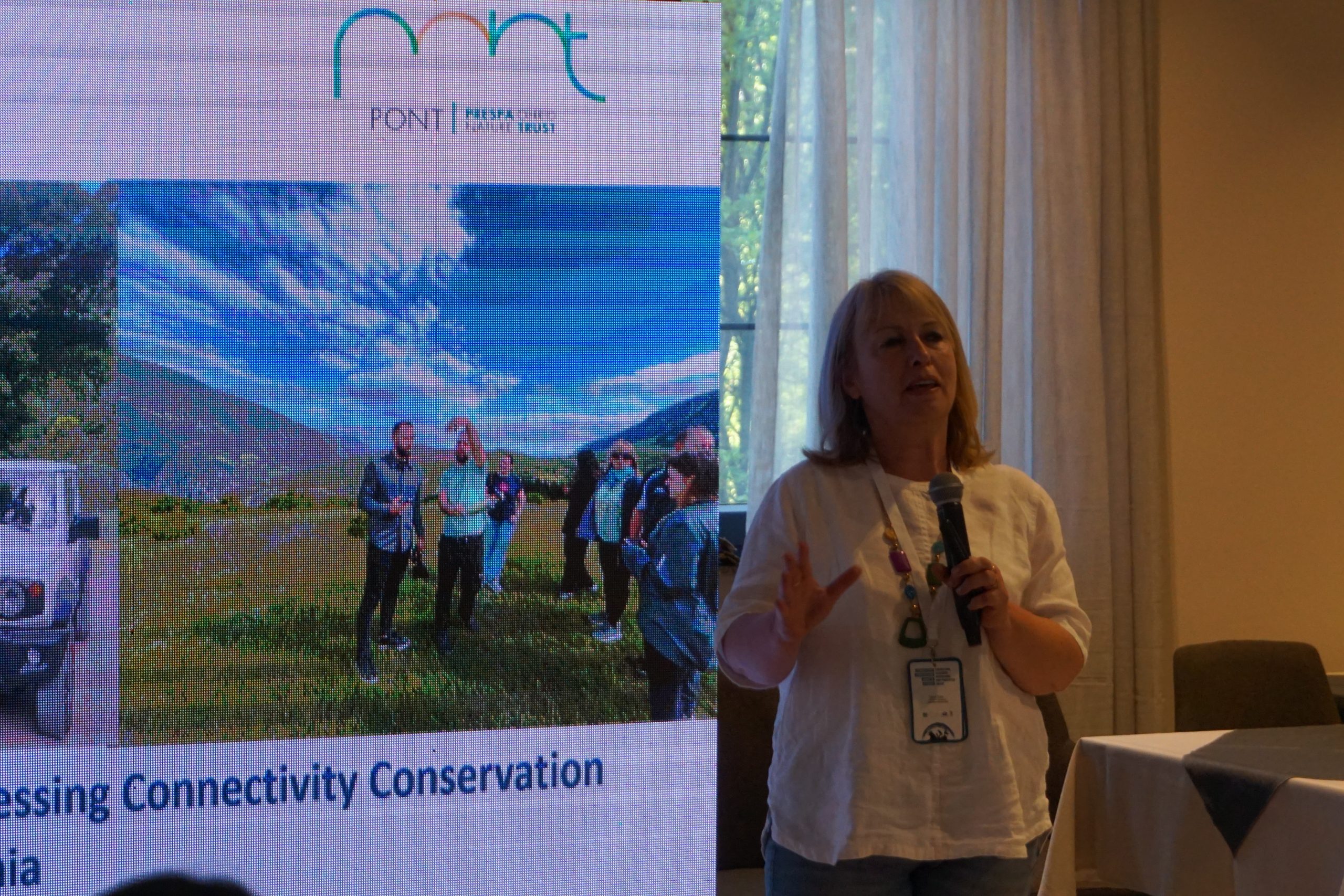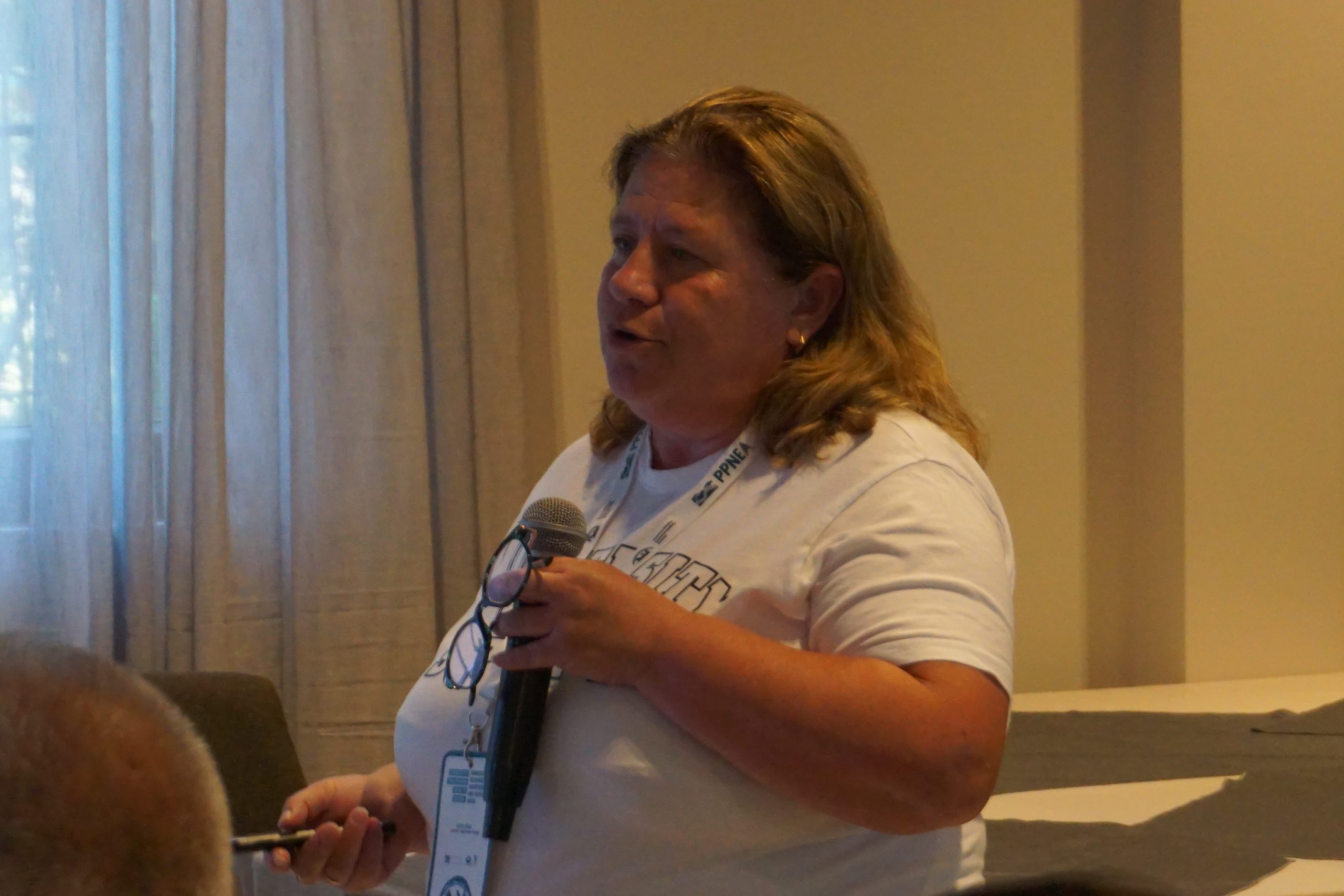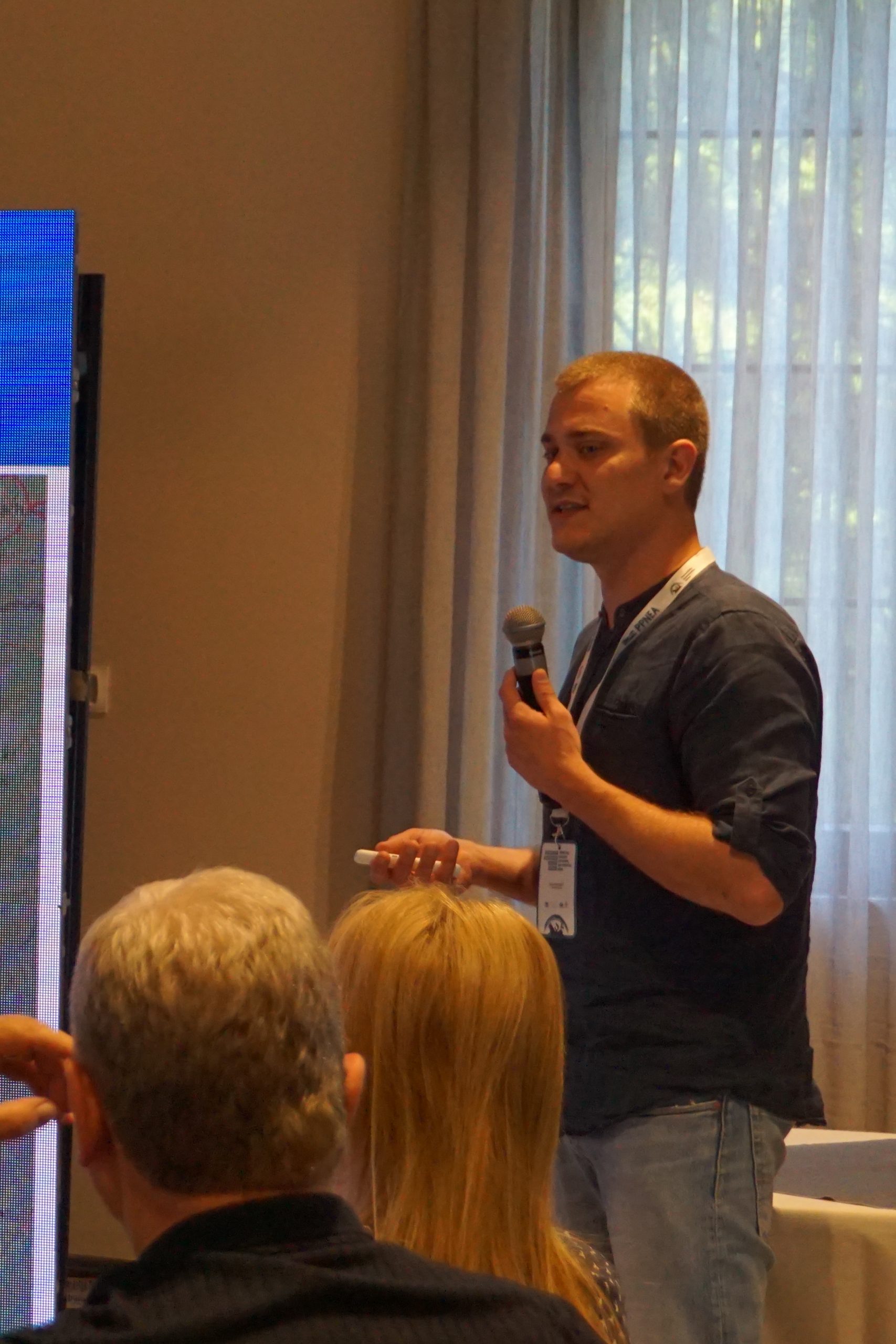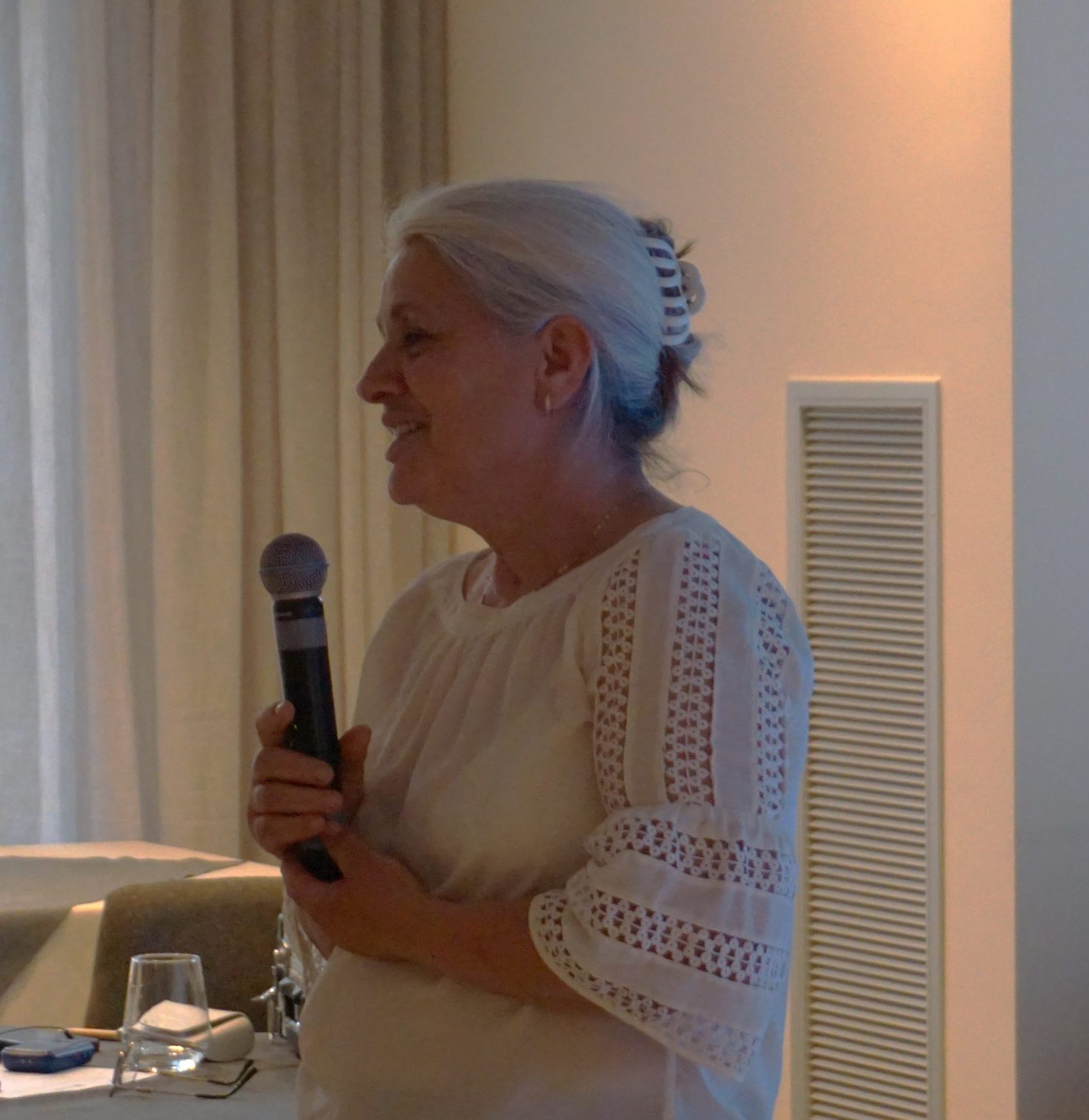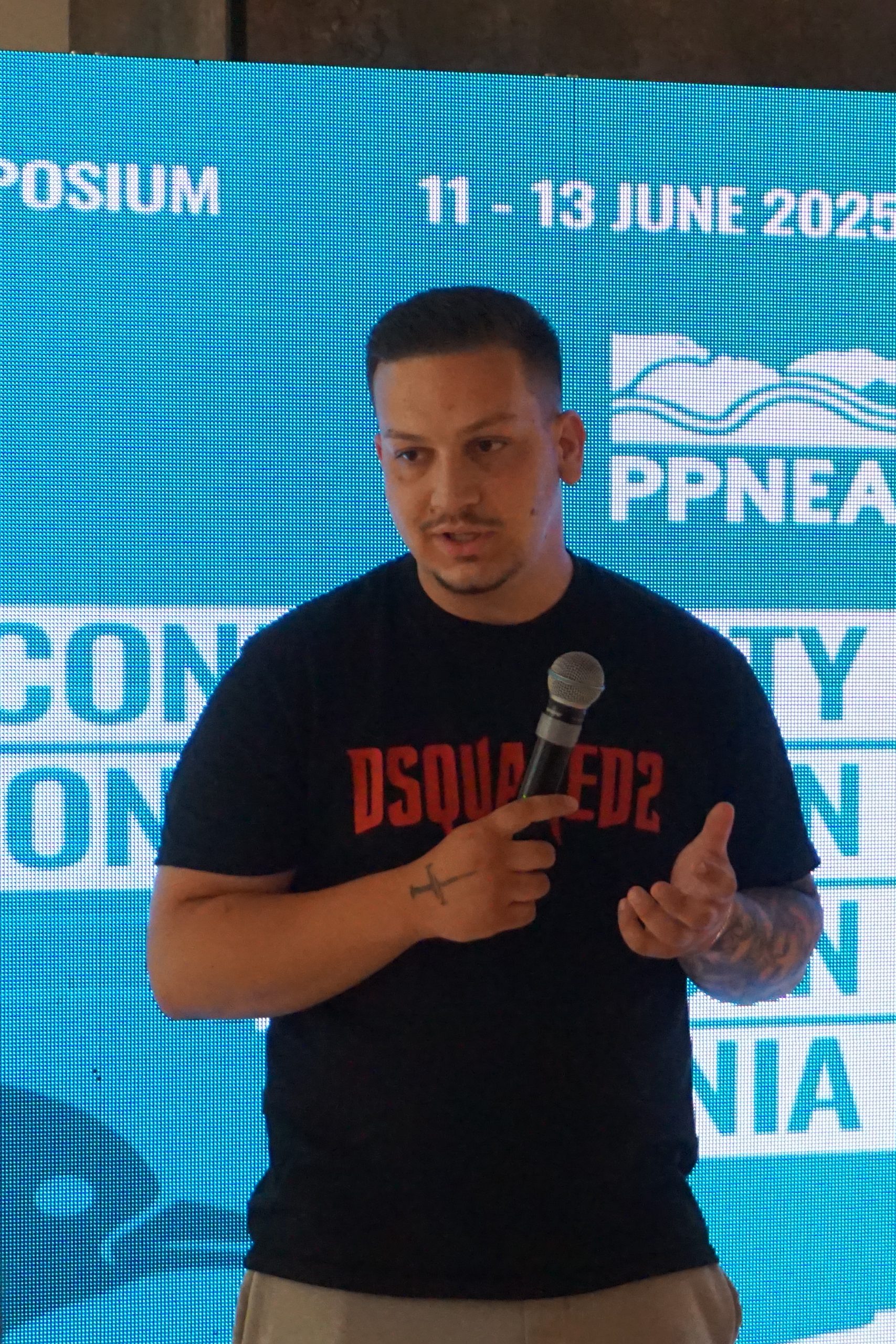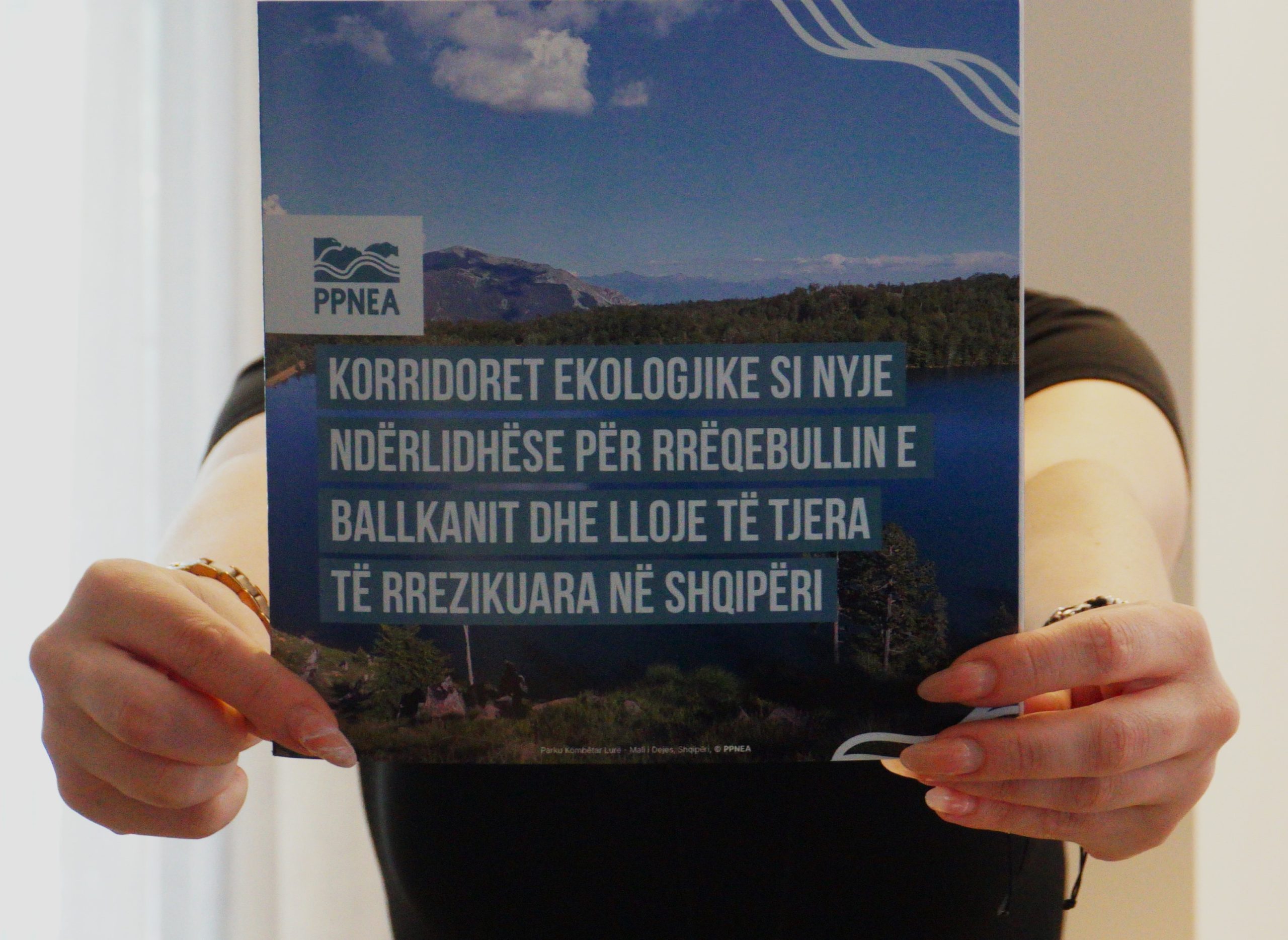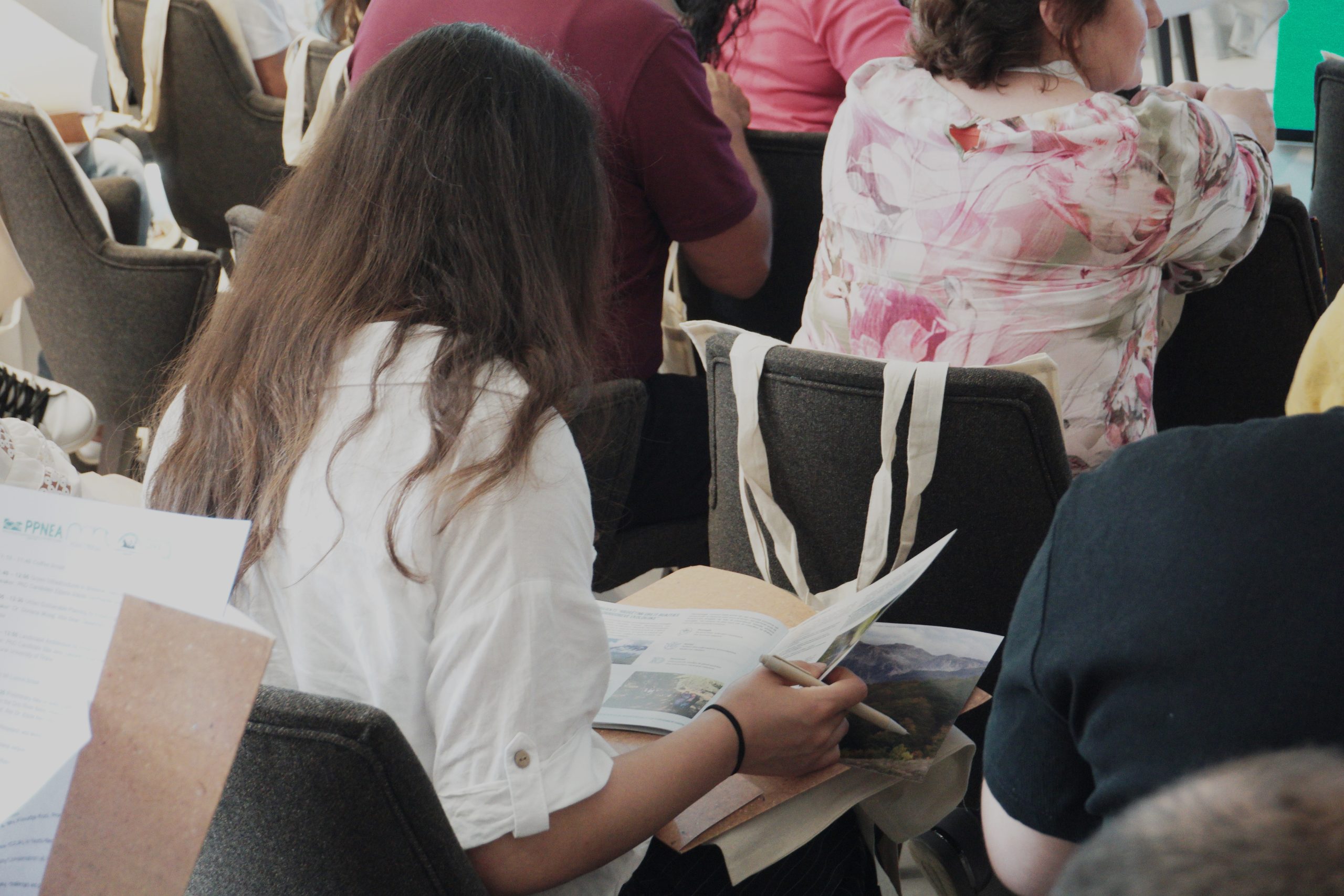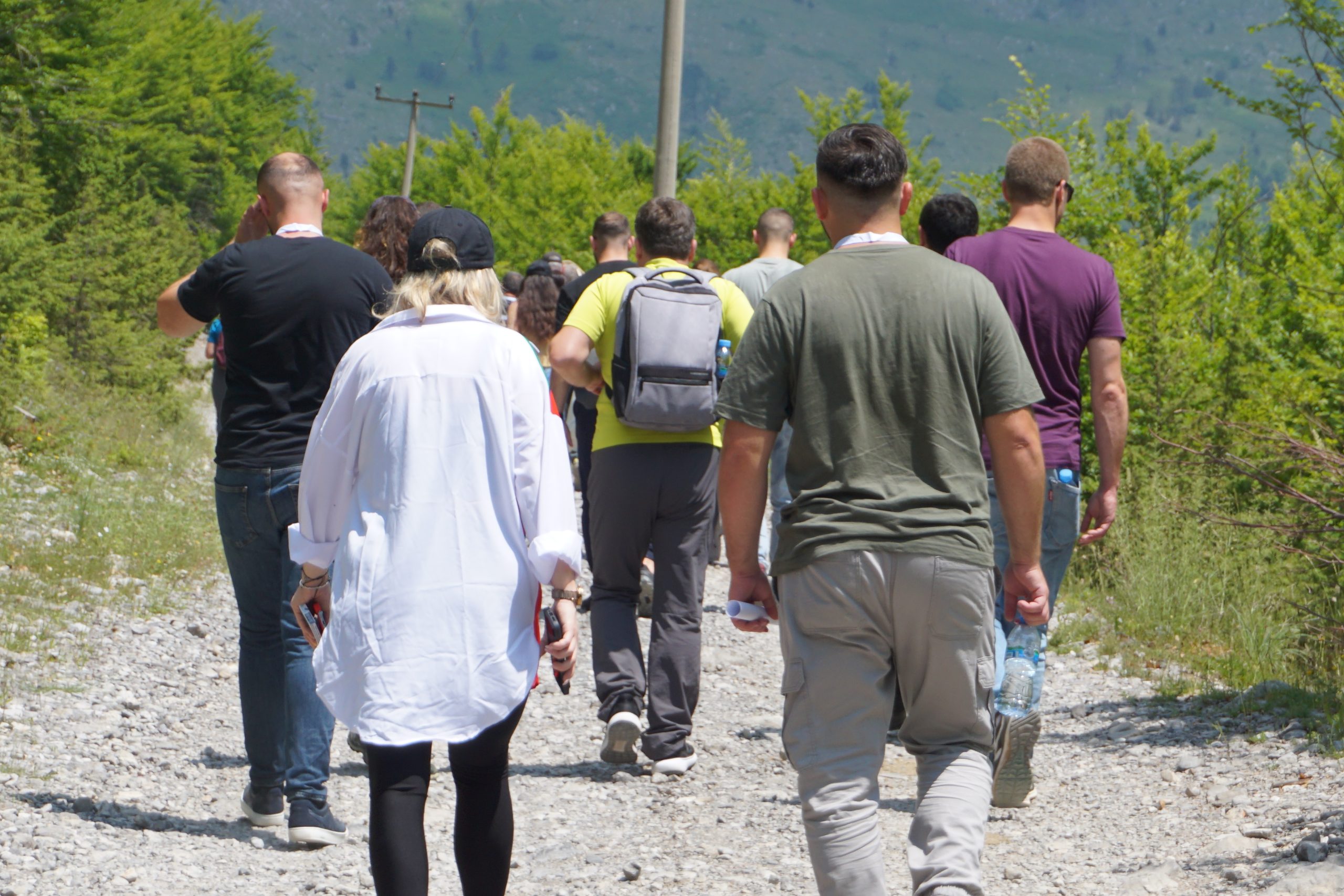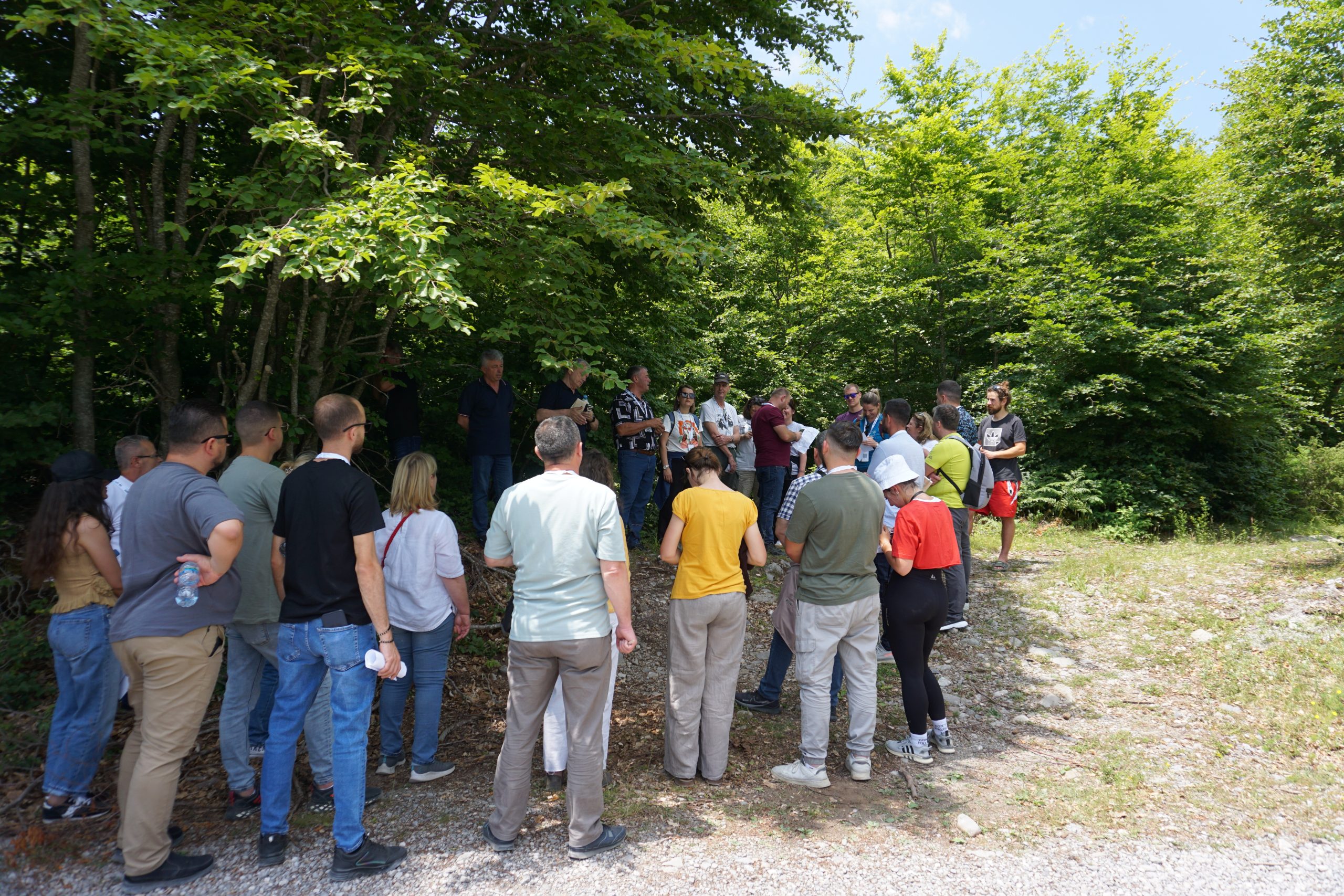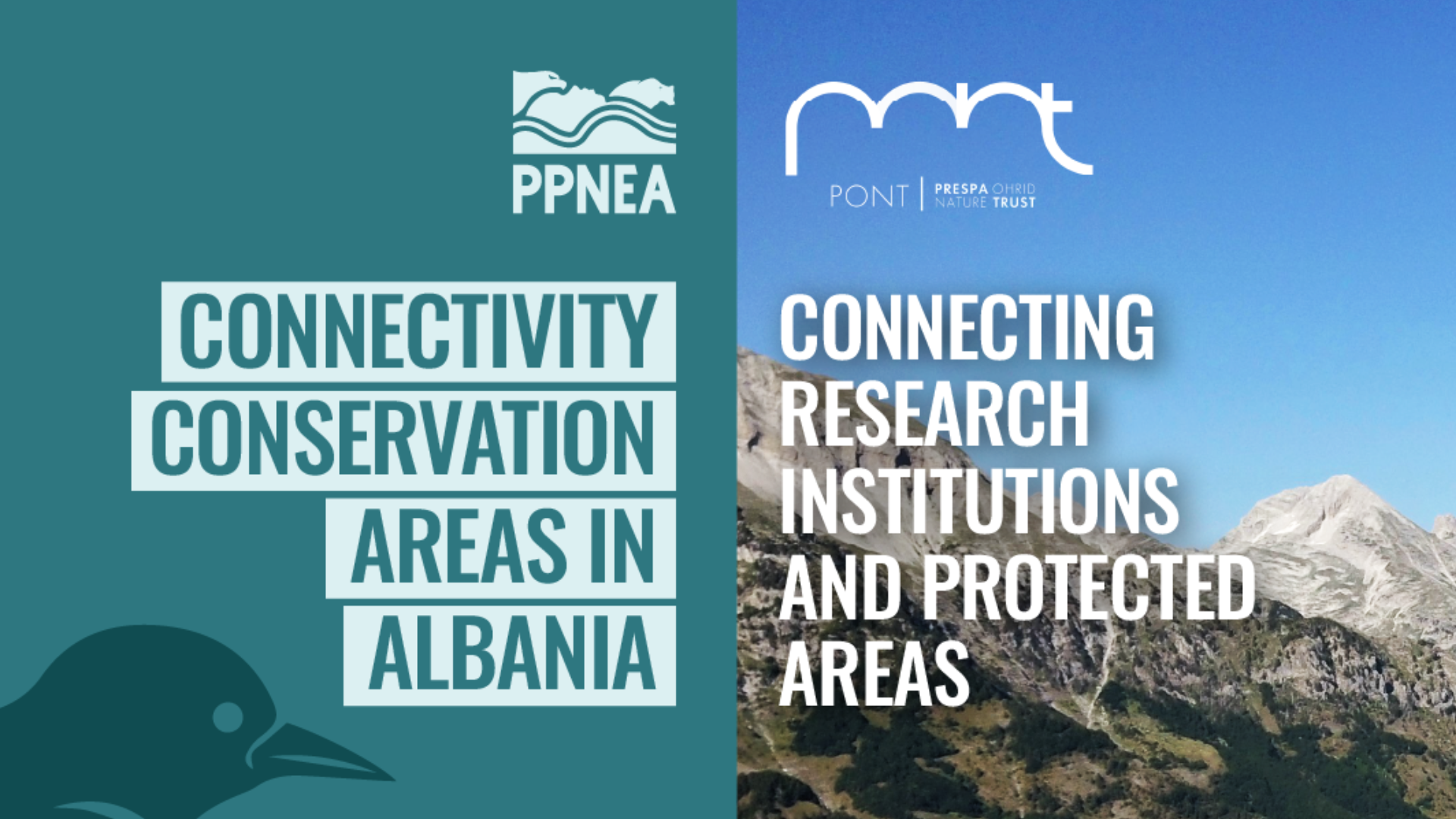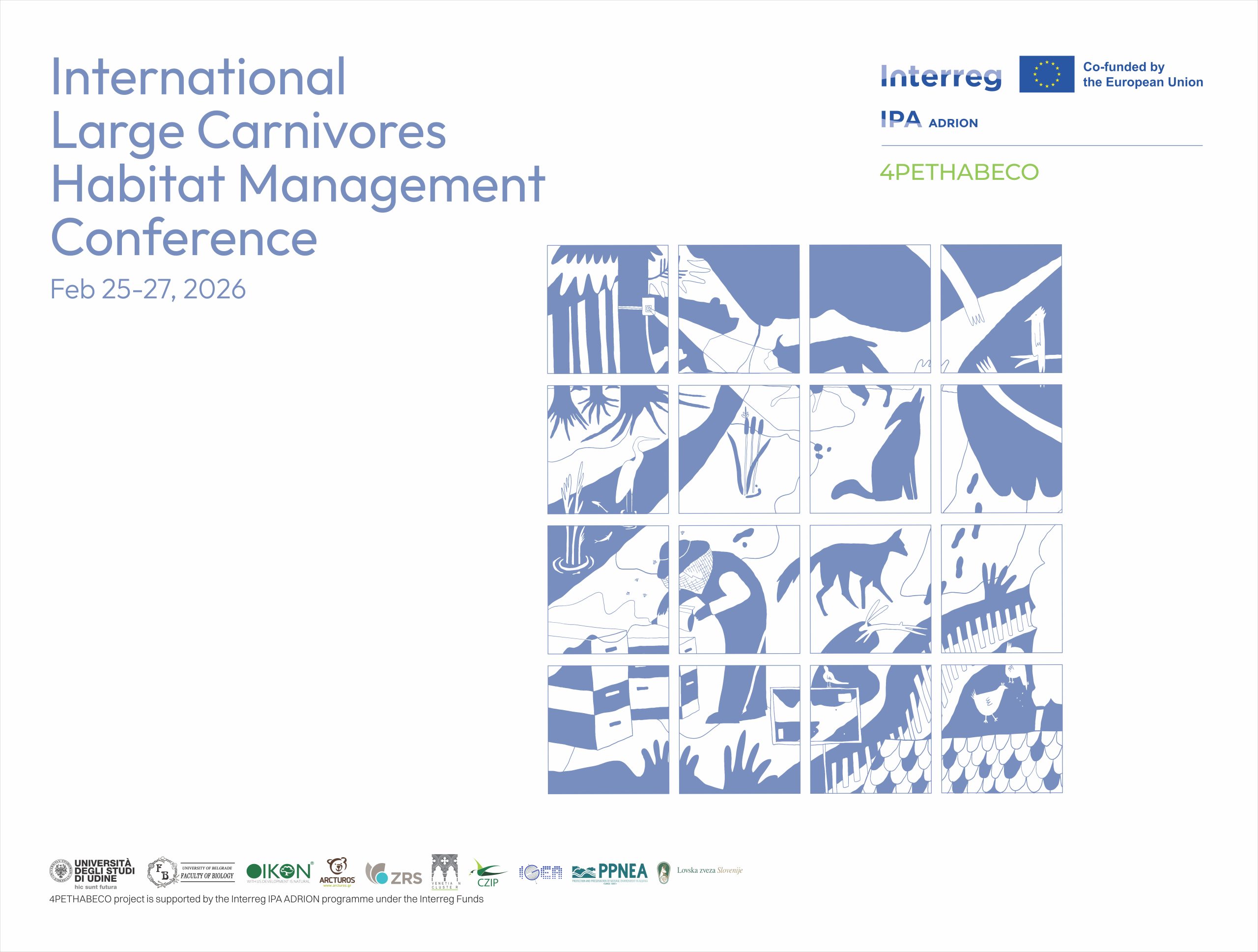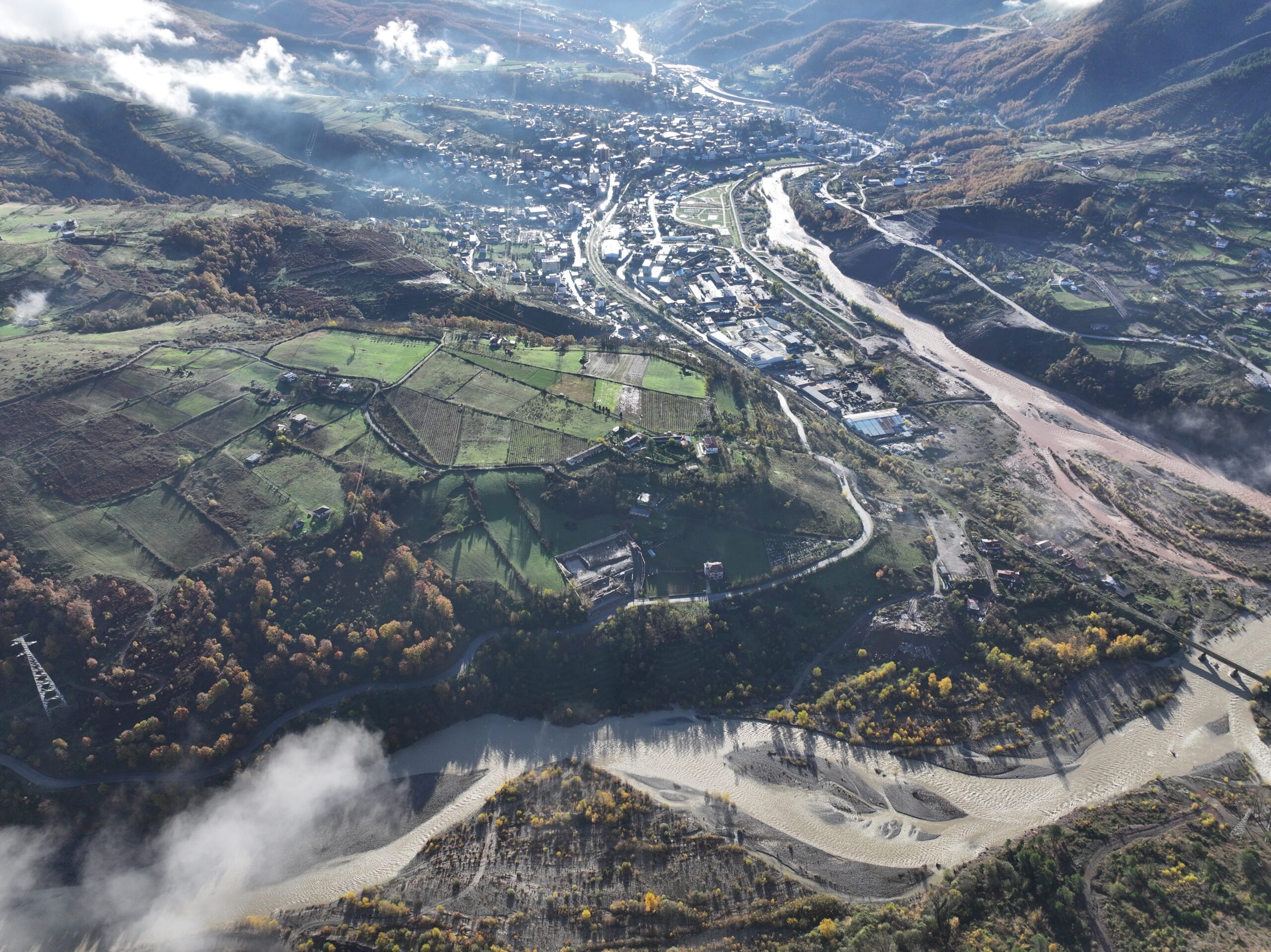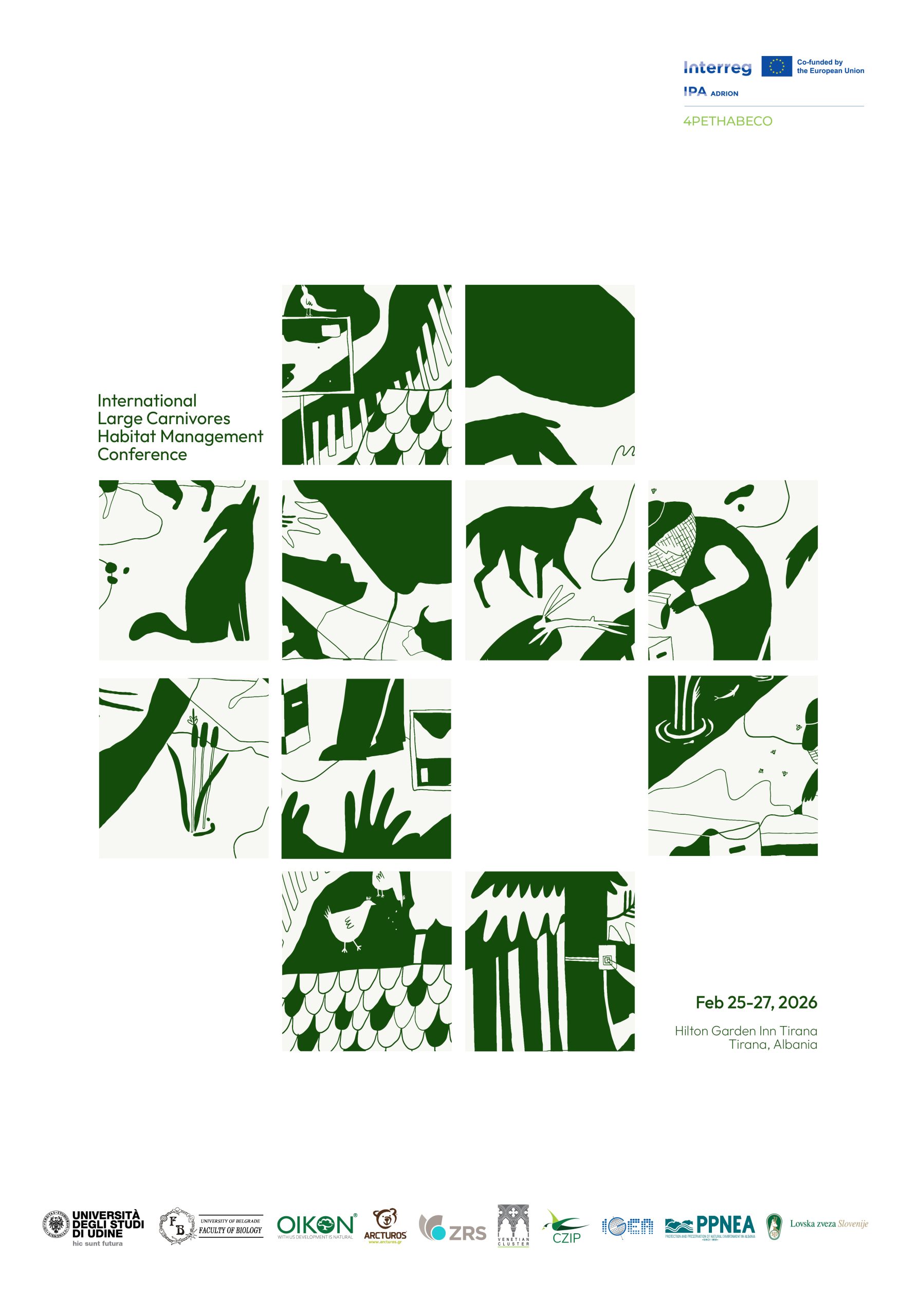On June 11 – 13, 2025, in Razma, the first national symposium entirely dedicated to ecological connectivity in Albania was held, a key moment for laying the scientific, institutional, and cross-sectoral foundations of nature conservation. This marked the first coordinated step at the national level to approach ecological corridors not merely as theoretical concepts, but as essential mechanisms for safeguarding biodiversity and ecosystem functions.
The spatial fragmentation of habitats and the barriers created by uncontrolled infrastructure development are leading to a continuous loss of wildlife species and vital ecosystem functions. In this context, the creation of ecological connectivity networks, encompassing both protected areas and the surrounding landscapes, is an urgent response to maintain the flow of natural processes.
The symposium brought together Albanian and international researchers, representatives of universities, public nature protection institutions, civil society organizations, and other relevant actors, to share knowledge and experience and to build a shared vision of ecological networking in Albania.
Over the course of three intensive days, the symposium addressed key issues for the future of nature conservation in Albania and the region, starting with the scientific and practical experience of conserving the Balkan lynx (Lynx lynx balcanicus), as well as the use of advanced models for its monitoring.
Special attention was given to the establishment and functioning of ecological corridors in Albania, North Macedonia, and Greece, the role of green infrastructure in preventing habitat fragmentation, and international practices in managing protected areas. The presentations showcased concrete examples of integrating biodiversity into spatial and urban planning, forest restoration, wildlife monitoring, and the inclusion of new technologies in agriculture and environmental management.
Among the keynote speakers were representatives of PPNEA, the Ministry of Tourism and Environment, the Agricultural University of Tirana, Polis University, GO2, MES Macedonia, CZIP Montenegro, the University of Udine, the University of Ioannina, the University of Durrës, the University of Shkodër, and Albanian University, who brought a wide range of expertise from mapping ecological corridors to managing human wildlife conflicts.
The third day included a Transect Walk through the Razma landscape, where participants had the opportunity to observe firsthand the functioning and challenges of ecological corridors in practice, as well as to discuss coexistence with wildlife and the impact of human interventions on the landscape.
The symposium concluded with closing remarks by Ms. Mirjam de Koning, Executive Director of the PONT Foundation, who emphasized the need to build a sustainable cooperation network for ecological connectivity — both at the level of public policy and cross-border collaboration.
Since 2022, PPNEA and its partners have identified four key ecological corridors across Albania:
-
Cukal – Munella – Balgjaj – Martanesh
-
Black Drin
-
Polis – Valamara – Rungaja – Morava – Gramoz
-
Tomorr – Vjosa
These corridors function as arteries of biodiversity, enabling the free movement of wildlife, genetic exchange, and the connection of ecosystems fragmented by economic development pressures and climate change.
